-
 Bitcoin
Bitcoin $114400
1.32% -
 Ethereum
Ethereum $3499
2.20% -
 XRP
XRP $2.922
4.26% -
 Tether USDt
Tether USDt $0.0000
0.03% -
 BNB
BNB $752.6
1.53% -
 Solana
Solana $161.8
1.64% -
 USDC
USDC $0.9999
0.01% -
 TRON
TRON $0.3267
1.32% -
 Dogecoin
Dogecoin $0.1991
3.02% -
 Cardano
Cardano $0.7251
3.29% -
 Hyperliquid
Hyperliquid $38.32
3.36% -
 Stellar
Stellar $0.3972
7.58% -
 Sui
Sui $3.437
2.74% -
 Chainlink
Chainlink $16.29
3.65% -
 Bitcoin Cash
Bitcoin Cash $545.3
3.70% -
 Hedera
Hedera $0.2482
7.49% -
 Ethena USDe
Ethena USDe $1.001
0.03% -
 Avalanche
Avalanche $21.40
2.02% -
 Toncoin
Toncoin $3.579
1.56% -
 Litecoin
Litecoin $109.3
2.20% -
 UNUS SED LEO
UNUS SED LEO $8.951
-0.18% -
 Shiba Inu
Shiba Inu $0.00001220
2.75% -
 Polkadot
Polkadot $3.613
2.99% -
 Uniswap
Uniswap $9.173
3.78% -
 Monero
Monero $302.6
2.62% -
 Dai
Dai $0.0000
0.00% -
 Bitget Token
Bitget Token $4.320
1.52% -
 Pepe
Pepe $0.00001048
3.40% -
 Cronos
Cronos $0.1314
4.33% -
 Aave
Aave $259.4
3.54%
How to identify wash trading in the NFT market?
Wash trading in the NFT market involves artificially inflating trading volumes to manipulate prices; spotting it requires analyzing trading patterns and wallet activity.
Apr 10, 2025 at 10:15 am
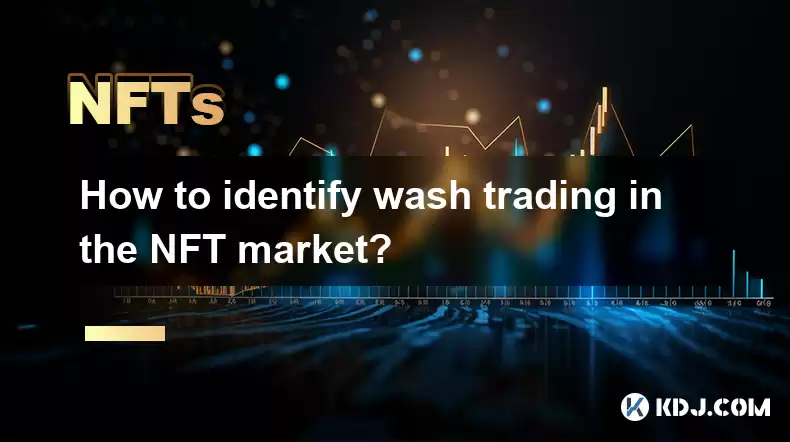
The NFT market, like many other cryptocurrency markets, is susceptible to various forms of manipulation, including wash trading. Wash trading is a deceptive practice where an individual or a group of individuals trade an asset among themselves to create artificial activity and manipulate the market. Identifying wash trading in the NFT market requires a keen eye and an understanding of certain telltale signs. This article will guide you through the process of spotting wash trading in the NFT market, helping you make more informed decisions.
Understanding Wash Trading
Before diving into the identification process, it's crucial to understand what wash trading entails. Wash trading involves buying and selling the same asset to create the illusion of market activity. This practice can inflate trading volumes and mislead other investors into thinking that an NFT is more popular or valuable than it actually is. By understanding the mechanics of wash trading, you can better spot it in the NFT market.
Analyzing Trading Volume and Patterns
One of the most effective ways to identify wash trading is by analyzing the trading volume and patterns of an NFT. Unusually high trading volumes for a particular NFT, especially when compared to similar assets, can be a red flag. Additionally, if the trading patterns show a high frequency of trades between the same wallets, it may indicate wash trading. To analyze this, you can use blockchain explorers or NFT market analytics tools to track the transaction history of an NFT.
- Visit a blockchain explorer like Etherscan or BscScan.
- Enter the NFT's contract address to view its transaction history.
- Look for patterns where the same wallets are repeatedly buying and selling the NFT.
Examining Price Stability
Another indicator of wash trading is unusual price stability. If an NFT's price remains remarkably stable despite high trading volumes, it could be a sign that the trades are being manipulated. In a normal market, high trading volumes typically lead to price fluctuations. If you notice an NFT maintaining a steady price amidst high activity, it's worth investigating further.
Investigating Wallet Activity
To further confirm suspicions of wash trading, you can investigate the activity of the wallets involved in the trades. Look for wallets that are involved in a high number of transactions with the same NFT. If these wallets are repeatedly trading with each other, it's a strong indication of wash trading. You can use tools like Nansen or Dune Analytics to track wallet activity and identify these patterns.
- Use a wallet tracking tool like Nansen or Dune Analytics.
- Enter the wallet addresses involved in the suspicious trades.
- Analyze the transaction history to see if the wallets are repeatedly trading the same NFT.
Checking for Anomalies in Market Data
Another method to identify wash trading is by checking for anomalies in market data. Look for discrepancies between the reported trading volumes and the actual on-chain activity. Some platforms may inflate their reported volumes to attract more users, which can be a sign of wash trading. You can compare the data from different sources to spot these discrepancies.
- Visit multiple NFT marketplaces and compare the trading volumes reported for the same NFT.
- Use on-chain data from blockchain explorers to verify the actual transaction volumes.
- Look for significant differences between the reported and actual volumes.
Utilizing Community Insights
The NFT community can be a valuable resource in identifying wash trading. Engage with other NFT enthusiasts on social media platforms, forums, and Discord channels to gather insights and share information. If multiple community members are reporting suspicious activity around a particular NFT, it's worth investigating further. Community vigilance can often uncover wash trading practices that might be missed by individual analysis.
- Join NFT-focused communities on platforms like Twitter, Reddit, and Discord.
- Participate in discussions about specific NFTs and their trading activity.
- Share and gather information about any suspicious patterns you've noticed.
FAQs
Q: Can wash trading be completely eliminated from the NFT market?
A: While it's challenging to completely eliminate wash trading, increased transparency and regulatory measures can help reduce its prevalence. Blockchain technology and community vigilance play crucial roles in identifying and mitigating these practices.
Q: Are there any tools specifically designed to detect wash trading in the NFT market?
A: Yes, several tools like Nansen, Dune Analytics, and even some blockchain explorers offer features that can help detect wash trading by analyzing transaction patterns and wallet activity.
Q: How can I report suspected wash trading in the NFT market?
A: If you suspect wash trading, you can report it to the NFT marketplace where the trades are occurring. Many platforms have mechanisms for reporting suspicious activity. Additionally, sharing your findings with the NFT community can help raise awareness and prompt further investigation.
Q: Does wash trading affect the overall value of NFTs?
A: Wash trading can artificially inflate the perceived value of an NFT by creating false demand. However, once the manipulation is exposed, the actual value of the NFT may drop significantly, affecting investors who bought into the hype.
Disclaimer:info@kdj.com
The information provided is not trading advice. kdj.com does not assume any responsibility for any investments made based on the information provided in this article. Cryptocurrencies are highly volatile and it is highly recommended that you invest with caution after thorough research!
If you believe that the content used on this website infringes your copyright, please contact us immediately (info@kdj.com) and we will delete it promptly.
- Altcoin Rotation, Smart Money, and Investment Trends: What's the Deal?
- 2025-08-04 12:30:11
- Crypto, Pi Network, Movement: Is Pi Coin the Next Big Thing?
- 2025-08-04 12:30:11
- Bitcoin, Metaplanet, and Institutional Confidence: A New Era?
- 2025-08-04 12:50:12
- XRP Price, Ripple CTO, and Tokenized Finance: A New York Minute on Crypto
- 2025-08-04 12:50:12
- Pi Coin: Future Access or Early Adoption Blues?
- 2025-08-04 12:55:11
- Ethereum Liquidations Rock Crypto Market: What's a New Yorker to Do?
- 2025-08-04 13:00:17
Related knowledge
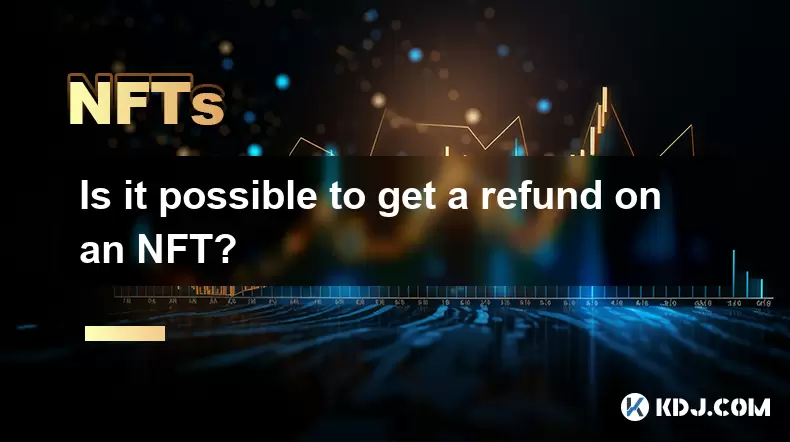
Is it possible to get a refund on an NFT?
Jul 21,2025 at 08:35pm
Understanding NFT Transactions and RefundsWhen you purchase an NFT (Non-Fungible Token), the transaction is typically recorded on a blockchain, making...
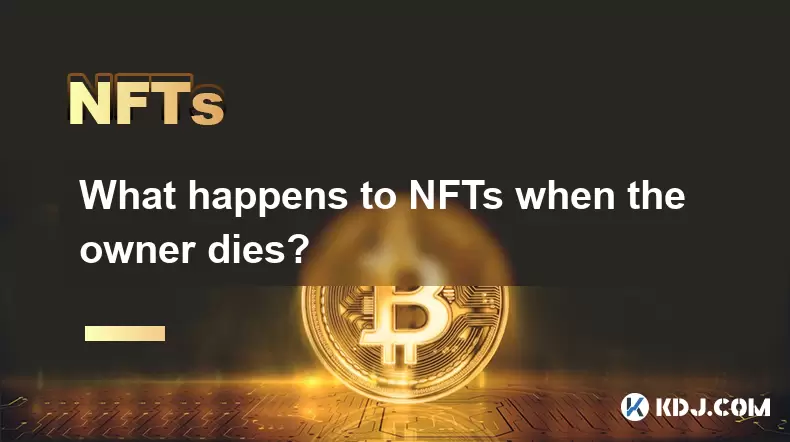
What happens to NFTs when the owner dies?
Jul 22,2025 at 02:43pm
Legal Ownership and Digital AssetsWhen an individual owns NFTs, the question of what happens to these assets upon their death is a pressing one. NFTs ...
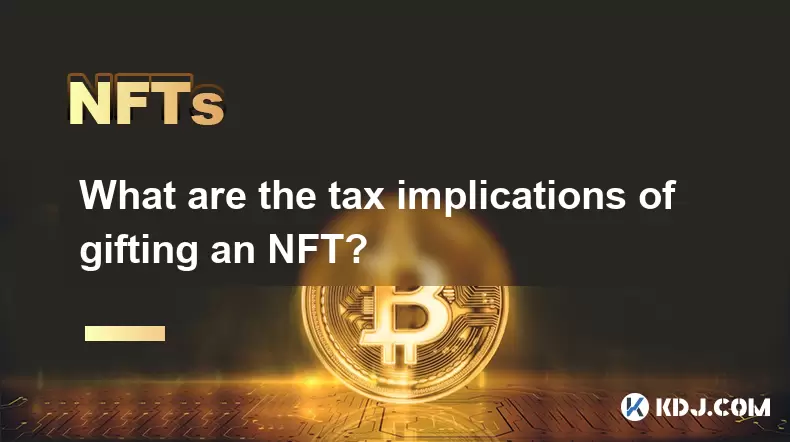
What are the tax implications of gifting an NFT?
Jul 19,2025 at 04:21am
Understanding the Basics of NFT GiftingGifting a Non-Fungible Token (NFT) involves transferring ownership from one individual to another without recei...
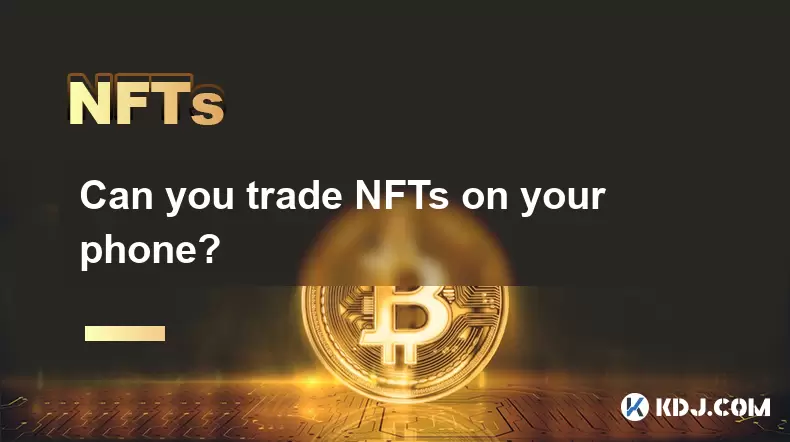
Can you trade NFTs on your phone?
Jul 18,2025 at 04:29am
Trading NFTs on Mobile DevicesYes, you can trade NFTs on your phone, and the process has become increasingly streamlined thanks to a variety of mobile...
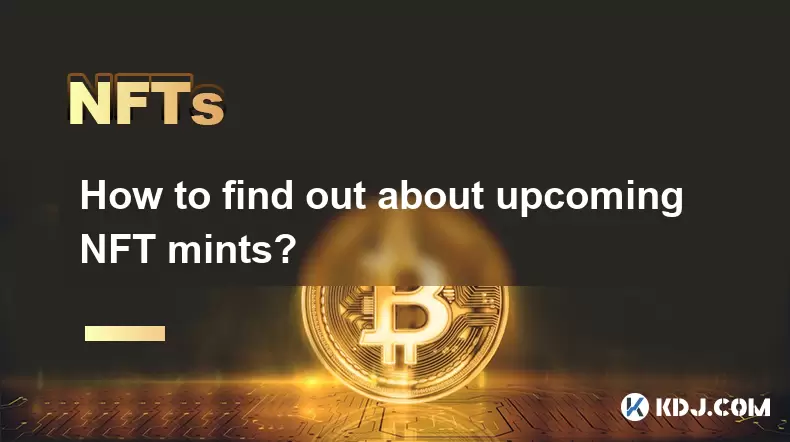
How to find out about upcoming NFT mints?
Jul 18,2025 at 11:50am
Exploring NFT Minting OpportunitiesUnderstanding the landscape of upcoming NFT mints is crucial for collectors, investors, and creators who wish to st...
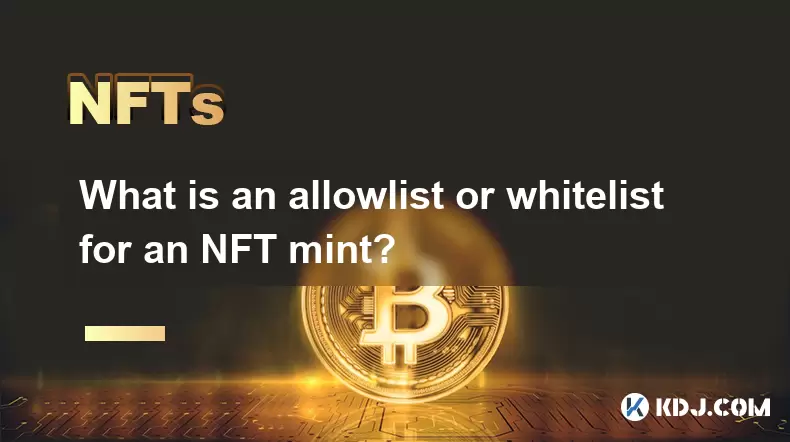
What is an allowlist or whitelist for an NFT mint?
Jul 20,2025 at 07:14pm
Understanding the Concept of an Allowlist for NFT MintingAn allowlist, also commonly referred to as a whitelist, is a mechanism used in the NFT mintin...

Is it possible to get a refund on an NFT?
Jul 21,2025 at 08:35pm
Understanding NFT Transactions and RefundsWhen you purchase an NFT (Non-Fungible Token), the transaction is typically recorded on a blockchain, making...

What happens to NFTs when the owner dies?
Jul 22,2025 at 02:43pm
Legal Ownership and Digital AssetsWhen an individual owns NFTs, the question of what happens to these assets upon their death is a pressing one. NFTs ...

What are the tax implications of gifting an NFT?
Jul 19,2025 at 04:21am
Understanding the Basics of NFT GiftingGifting a Non-Fungible Token (NFT) involves transferring ownership from one individual to another without recei...

Can you trade NFTs on your phone?
Jul 18,2025 at 04:29am
Trading NFTs on Mobile DevicesYes, you can trade NFTs on your phone, and the process has become increasingly streamlined thanks to a variety of mobile...

How to find out about upcoming NFT mints?
Jul 18,2025 at 11:50am
Exploring NFT Minting OpportunitiesUnderstanding the landscape of upcoming NFT mints is crucial for collectors, investors, and creators who wish to st...

What is an allowlist or whitelist for an NFT mint?
Jul 20,2025 at 07:14pm
Understanding the Concept of an Allowlist for NFT MintingAn allowlist, also commonly referred to as a whitelist, is a mechanism used in the NFT mintin...
See all articles

























































































